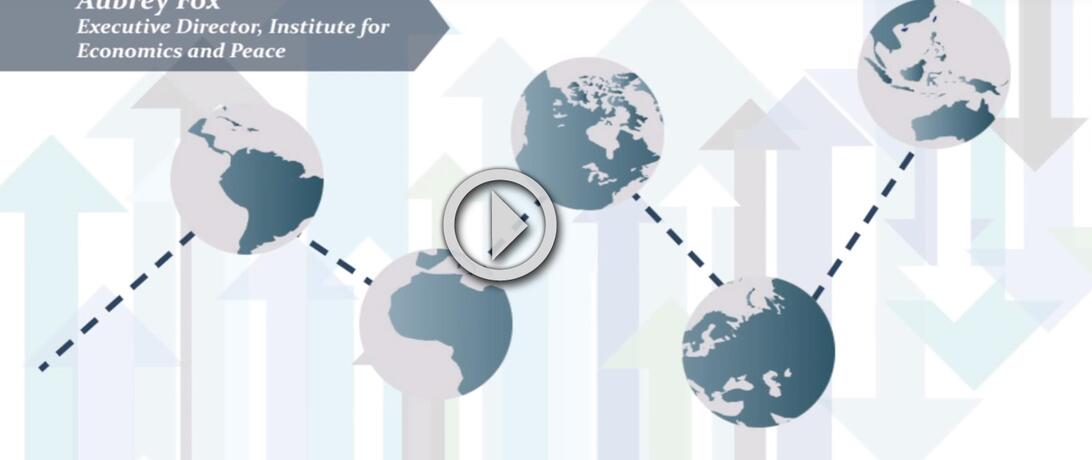
OEF and the Institute for Economics and Peace (IEP) co-hosted the Denver launch of the 9th annual Global Peace Index in June. IEP's Executive Director Aubrey Fox visited the OEF offices and talked with Lindsay Heger about the Global Peace Index, including the concept of peace inequality, negative versus positive peace, and the significance of bringing metrics to the study of peace.
Transcript of the interview follows:
[Aubrey]
So in this year’s Global Peace Index, which we just released, probably the most striking finding is this idea of ‘peace inequality.’ Some countries and regions of the world are getting more and more peaceful, most notably Europe, which has reached a historic level of peacefulness. But then there are other countries and regions of the world like the Middle East and North Africa that are becoming less and less peaceful, and greatly so, and unfortunately appear to be stuck in kind of a vicious cycle of conflict and instability. And generally speaking- we observe a few trends- but one that stands out is this idea that violence between nations appears to have decreased, but internal violence, whether through civil war or internal conflicts or interpersonal day-to-day violence, has gone up fairly substantially.
[Lindsay]
So when we think about peace and conflict, what do you think are the most important metrics for us to be tracking?
[Aubrey]
Well, I mean even the idea of bringing metrics to the study of peace I think is absolutely critical. The old saying that if you can’t measure something, it doesn’t matter, I think is really true particularly for a field like peace studies, which I think has often felt kind of aspirational but not very concrete. So the way we define peace in our Global Peace Index is ‘the absence of violence or fear of violence.’ So we’re saying that peace is more than the opposite of war. It’s the opposite of all the day-to-day feelings of security and safety that citizens would want to enjoy. And even coming up with a definition that’s clear and coherent, easy to explain and generally something that someone would nod their head and agree on, I think is important. The challenge then becomes: how do you measure those things? And what the Global Peace Index does is takes 23 different indicators and puts them together into one score for 162 countries.
[Lindsay]
And data in this area is quite hard to come by.
[Aubrey]
Well, you know, yes and no. In doing our work, we’re relying on a lot of excellent data sources. And so I think the challenge is not so much the raw data, although there are clearly gaps in that, but how do you bring all that data together, how do you harmonize it across countries, how do you make sure that it’s reliable, what weight do you apply in our case to the 23 indicators that we use? And I think that—if anything, that’s the bigger challenge but that’s something we’ve kind of learned through nine years of the Global Peace Index, and we continue to refine every year.
[Lindsay]
Right. And to take you back to this idea of ‘peace inequality,’ if we kind of flip that and talk about ‘peace equality,’ how can the international community best contribute to equality in terms of peace amongst all nations?
[Aubrey]
Well, in addition to the Global Peace Index, which is a measure of what we call ‘negative peace’ - things you don’t want to have happen in your country – we have a separate analysis around what we call ‘positive peace.’ That looks at the attitudes, institutions, and structures of more peaceful nations: what do we know about these places. And we’ve identified eight factors through empirical analysis that if you get right, we can clearly show the link to positive peace, and actual peace as measured through the Global Peace Index. And so I think for the global community, it’s about finding ways to invest in these underlying factors.
[Lindsay]
Okay.
[Aubrey]
The three domains that we find the most important are sound business environment, good governance, and low levels of corruption.
[Lindsay]
Okay.
[Aubrey]
None of those are easy but unlocking those is really the key.
Article Details
Published
Topic
Program
Content Type
News